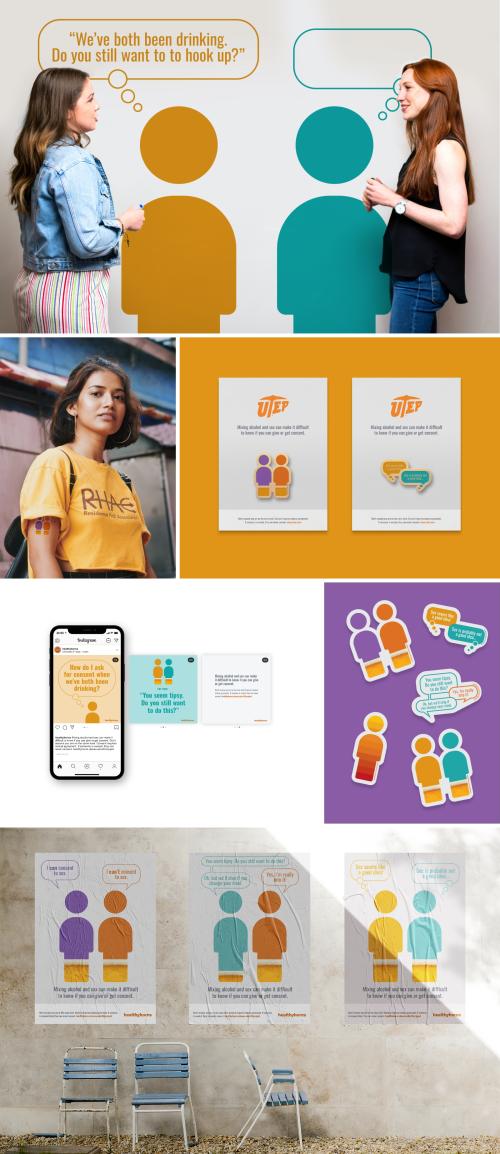Alcohol & Consent Project
Creating a Health Communication Campaign to Address the Intersection of Alcohol & Sexual Consent

Overview
For college students in the UT System, 56% of victims and 77% of perpetrators of sexual assault were using alcohol or drugs at the time of victimization.
All UT System campuses commit considerable resources to combating sexual assault through education, prevention, compliance, accountability for perpetrators, and support for survivors. However, with all of the work that campuses do, one of the most difficult topics to adequately and realistically address is the intersection of alcohol use and sexual consent.
Because the combination of alcohol and sexual activity is a reality for many college students, and alcohol is implicated in the majority of sexual assaults, campuses need effective messages to convey to their students how alcohol use relates to the ability to give and receive consent.
A&C Project goals:
- Increase awareness of how alcohol affects our ability to give and get consent
- Increase students' ability to have conversations about consent when alcohol is involved
- Shift the culture toward normalizing consent conversations, both when alcohol is involved and not
Expertise
- Quantitative research
- Qualitative research
- Creative strategy
- Campaign branding
- Graphic design
- Copywriting
- Creative testing
Timeline

YEAR 1 (2018-2019)
- Build steering and research committees
- Test messages with college students using interviews and surveys

YEAR 2 (2019-2020)
- Launch at UT Austin and UT El Paso
- Initial assessment; use results to refine messages and materials

YEAR 3 (2020-2021)
- Campaign toolkit available across UT System campuses
- Evaluation and final report
Approach
The UT Center for Health Communication uses a theory-driven and evidence-based process to understand health issues and target audiences. We use these insights to develop strategic messages and tactics that meet the needs of our partners and have the best chance of changing health behaviors.
Our research process included an environmental scan, qualitative interviews, a survey to evaluate draft message, and creative concept testing. The mix-methods research plan uncovered key insights related to alcohol, sex, consent, and communication.
One significant finding was that male-identified students reported they could give and receive consent one level higher than female-identified students on a custom "drunk scale" developed specifically for this project.
Additionally, students expressed a desire for campaign messages to include examples of dialogue between partners, clear, "right" language to describe these issues, create a social normal where having these conversations is expected, and emphasize that asking for consent when drinking doesn't kill the mood but does develop trust.
In summer 2019, we used message testing results to draft and test four creative concepts. These results informed the production of an evidence-based health communication campaign implemented at two pilot schools (UT Austin and UT El Paso) during the 2019-2020 academic year.
Working alongside members of the target audience who served as paid student assistants, we built a marketing plan adaptable by each UT System academic institution. This plan enabled each campus to implement the campaign effectively on their own campus.


